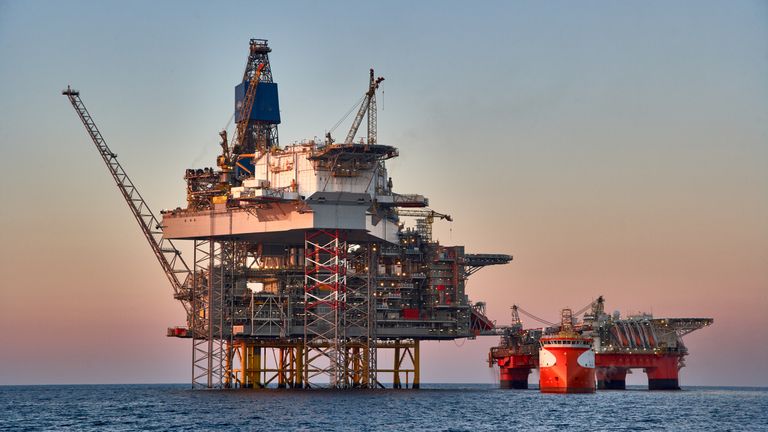The future of Britain’s oil and gas industry has been thrown into doubt after a landmark decision by the Supreme Court.
The court ruled on Thursday that emissions from burning fossil fuels must be considered when approving new drilling sites.
It is the latest development in the case brought by Sarah Finch, a Surrey resident who challenged the local council’s decision to allow the expansion of an oil site at Horse Hill in 2019.
Ms Finch, acting on behalf of Weald Action Group, argued that the environmental impact assessment had only considered emissions from the extraction of oil – and wrongly ignored those produced when the oil was burned.
The Supreme Court has since sided in her favour, handing down a decision that has huge implications for the entire UK oil and gas industry.
Legal experts say the decision could influence the way in which new fossil fuel projects are assessed in the UK, forcing planning officials and energy companies to justify emissions generated by oil and gas.
Ms Finch triumphed at the Supreme Court after her case was dismissed by the High Court and the Court of Appeal.
Surrey County Council had sought to challenge her case on the basis that the law did not require it to consider “downstream” emissions as part of the assessment.
In its decision on Thursday, Supreme Court justices ruled three-to-two in favour of allowing her appeal. In doing so, they also overturned the decision to grant planning permission for the Horse Hill drilling site.
In his judgement, Lord Leggatt said “it seems to me plain” that emissions created by burning oil extracted at the site “are effects of the project”, and as a result “it follows that the council’s decision was unlawful”.
‘Demonstrably flawed’
In a ruling backed by Lord Kitchin and Lady Rose, he said: “The reasons accepted by the council for excluding the combustion emissions from consideration and assessing only direct greenhouse gas emissions from within the well site boundary are therefore demonstrably flawed.”
He continued: “In my view, there was no basis on which the council could reasonably decide that it was unnecessary to assess the combustion emissions.”
The Supreme Court’s decision is also likely to set a precedent for similar legal challenges against Shell’s Jackdaw project and Equinor’s Rosebank development.
Following the decision, Ms Finch said: I am absolutely over the moon to have won this important case. The Weald Action Group has always believed it was wrong to allow oil production without assessing its full climate impacts, and the Supreme Court has shown we were right.
“This is a welcome step towards a safer, fairer future. The oil and gas companies may act like ‘business as usual’ is still an option, but it will be very hard for planning authorities to permit new fossil fuel developments – in the Weald, the North Sea or anywhere else – when their true climate impact is clear for all to see.”
Disclaimer: The copyright of this article belongs to the original author. Reposting this article is solely for the purpose of information dissemination and does not constitute any investment advice. If there is any infringement, please contact us immediately. We will make corrections or deletions as necessary. Thank you.



